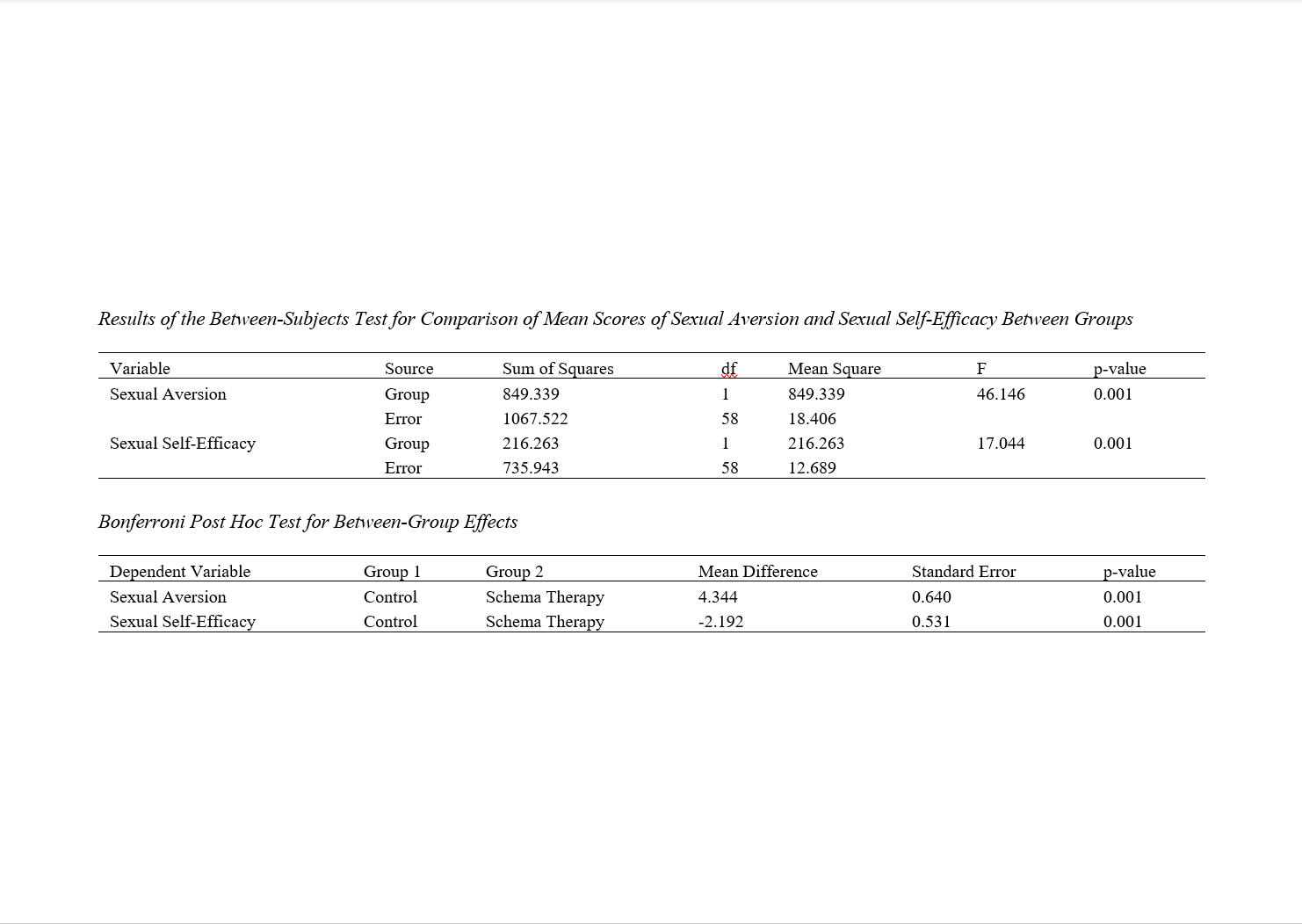The Effectiveness of Schema Therapy on Sexual Aversion and Sexual Self-Efficacy
Keywords:
Schema therapy, sexual aversion, sexual self-efficacy, early maladaptive schemas, sexual dysfunctionAbstract
Objective: This study aimed to evaluate the effectiveness of schema therapy on reducing sexual aversion and enhancing sexual self-efficacy.
Methods: The research utilized a semi-experimental design with pre-test, post-test, and follow-up assessments. Thirty couples experiencing sexual aversion and low sexual self-efficacy were selected from counseling centers in Karaj, Iran. Participants were randomly assigned to either a schema therapy group (n=15) or a control group (n=15). The schema therapy group received 8 to 10 sessions of intervention. Two standardized questionnaires, the Sexual Self-Efficacy Questionnaire and the Sexual Aversion Inventory, were used to measure outcomes. Data were analyzed using multivariate analysis of covariance (MANCOVA), and follow-up tests were conducted to assess the stability of the intervention effects over time.
Findings: The findings revealed that schema therapy significantly improved sexual self-efficacy and reduced sexual aversion in the experimental group compared to the control group (p < .01). These improvements were sustained during the follow-up phase, with no significant decline in outcomes. The post-test and follow-up results demonstrated that schema therapy had a lasting positive impact on participants’ sexual health. The control group, in contrast, showed no significant changes across the measurement phases.
Conclusion: Schema therapy was found to be an effective intervention for reducing sexual aversion and increasing sexual self-efficacy. The sustained improvements suggest that schema therapy offers long-term benefits for individuals struggling with these sexual issues. This study highlights the importance of addressing early maladaptive schemas to improve sexual health and relationship satisfaction.
Downloads

Downloads
Additional Files
Published
Submitted
Revised
Accepted
Issue
Section
License
Copyright (c) 2024 Hosna Ahmadzadeh (Author); Mehrnaz Azadyekta (Corresponding Author); Fariborz Bagheri (Author)

This work is licensed under a Creative Commons Attribution-NonCommercial 4.0 International License.




















